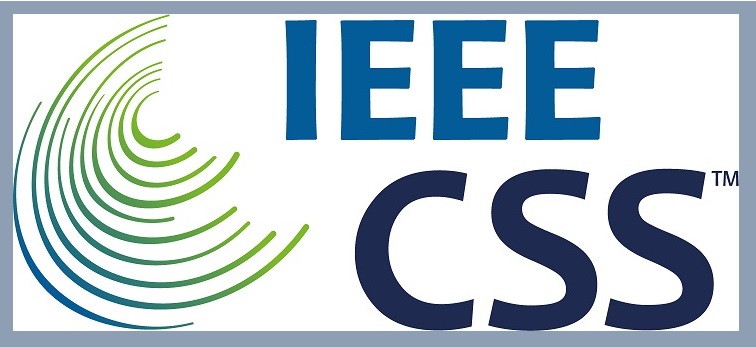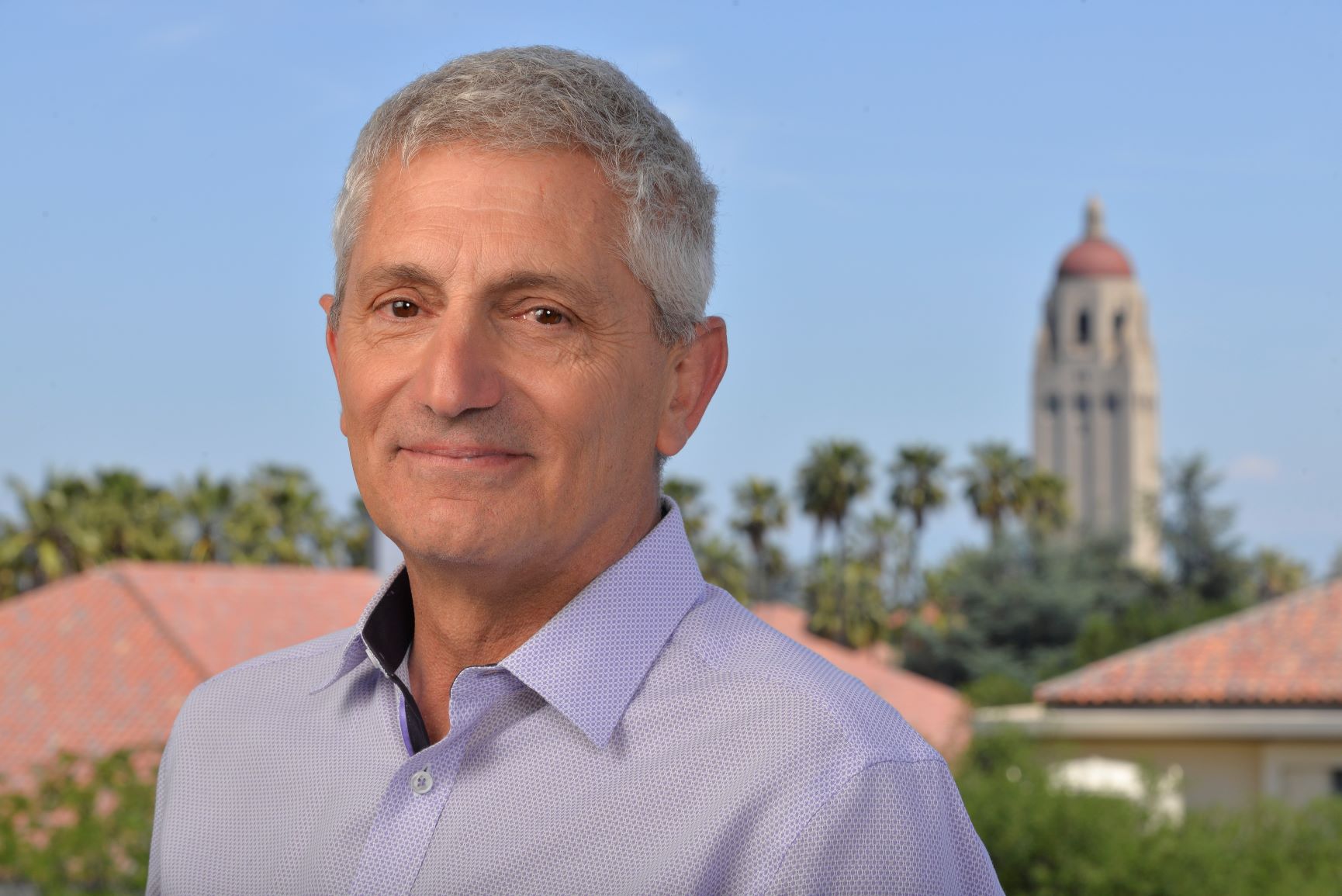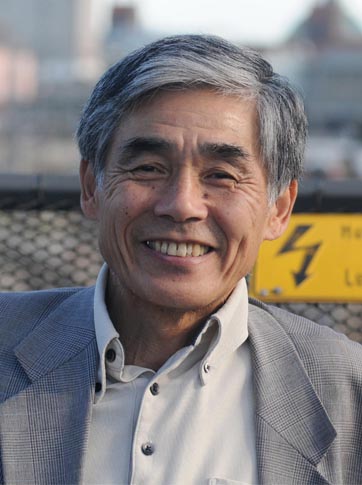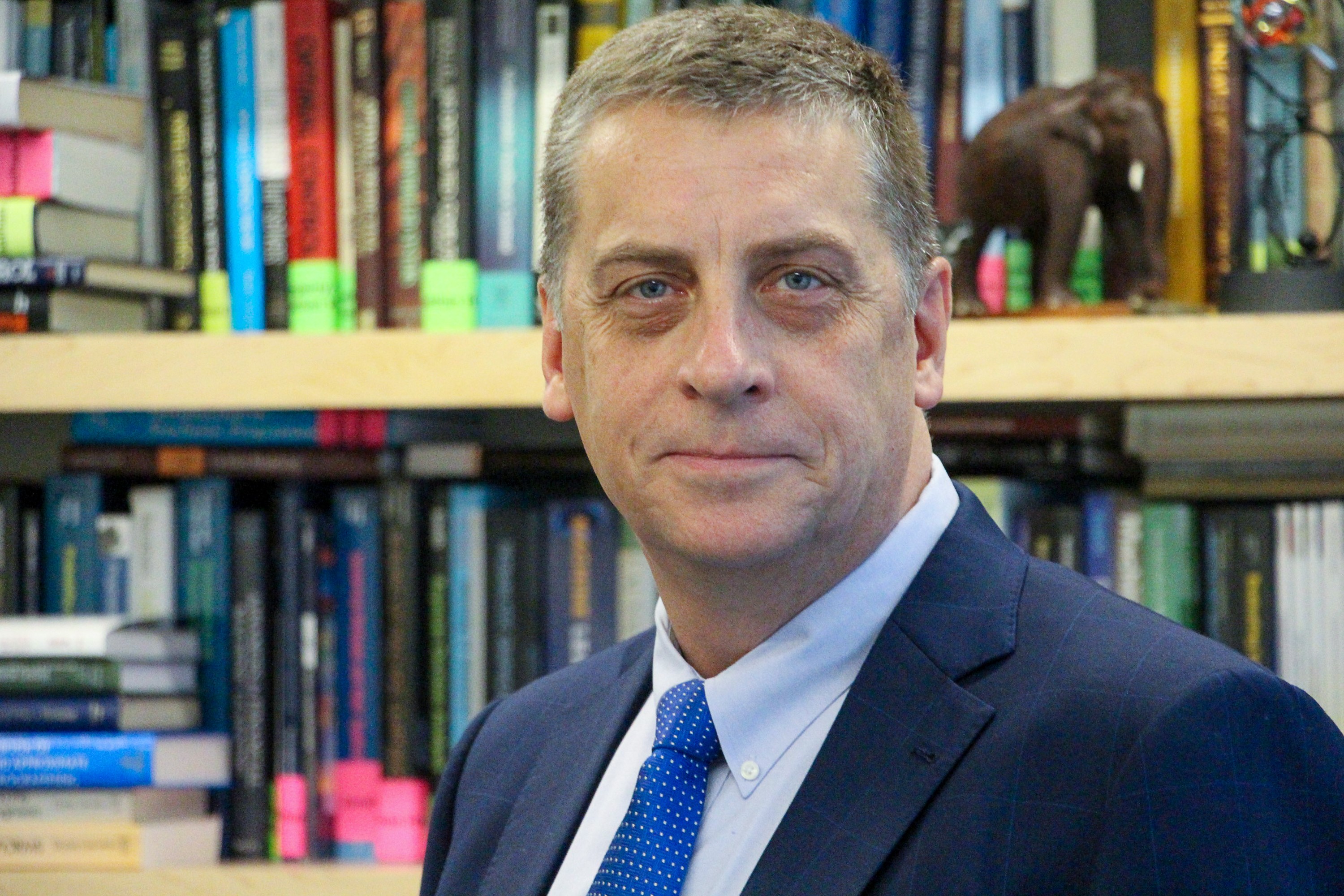|
Organized by
 |
 |
|
Technically
co-sponsored by |
|
 |
 |
Your IP: 216.73.216.145
Unique visitors: 164390
Total Page views: 1
(Since February 1st,
2019)
Contact the webmaster
|
 |
Kristin Y. Pettersen
Norwegian University of Science and Technology, Norway
Snake Robots
Time and Location:
Thursday, December 17, 15:10-16:10 (UTC), Auditorium 1 on JVCC
Abstract:
Snake robots are motivated by the slender and flexible body of biological snakes, which allows them to move in virtually any environment on land and in water. Since the snake robot is essentially a manipulator arm that can move by itself, it has a number of interesting applications including firefighting and search-and-rescue operations. In water, the robot is a highly flexible and dexterous manipulator arm that can swim by itself like a sea snake. This highly flexible snake-like mechanism has excellent accessibility properties, and not only can the snake robot access narrow openings and confined areas, it can also carry out highly complex manipulation tasks at this location since manipulation is an inherent capability of the system.
This talk presents research results on modelling, analysis and control of snake robots, including both theoretical and experimental results. Ongoing efforts are described for bringing the results from university research towards industrial use.
Biography:
Kristin Y. Pettersen is a Professor in the Department of Engineering Cybernetics at NTNU where she has been a faculty member since 1996. She was Head of the Department in 2011-2013, Vice-Head of the Department in 2009-2011, and Director of the NTNU ICT Program of Robotics in 2010-2013. She is Adjunct Professor at the Norwegian Defence Research Establishment (FFI). In the period 2013-2022 she is also Key Scientist at the CoE Centre for Autonomous Marine Operations and Systems (NTNU AMOS). She is a co-founder of the NTNU spin-off company Eelume AS, where she was the CEO in 2015-2016.
She received the MSc and PhD in Engineering Cybernetics at NTNU, Trondheim, Norway, in 1992 and 1996, respectively. She has published four books and more than 250 papers in international journals and refereed conferences. Her research interests are in nonlinear control of mechanical systems with applications to robotics, with a special emphasis on marine robotics and snake robotics. She was awarded the IEEE Transactions on Control Systems Technology Outstanding Paper Award in 2006 and in 2017.
She was a member of the Board of Governors of IEEE Control Systems Society 2012-2014 and is currently a member of both the IFAC Council and the EUCA Council. She has also held and holds several board positions in industrial and research companies. She was Program Chair of the IEEE Conference on Control Technology and Applications in 2018 and has served as Associate Editor for several international conferences. She has served as Associate Editor of IEEE Transactions on Control Systems Technology and IEEE Control Systems Magazine, and is currently Senior Editor of Transactions on Control Systems Technology. She is an IEEE CSS Distinguished Lecturer for 2019-2021, IEEE Fellow, member of the Norwegian Academy of Technological Sciences, and member of the Academy of the Royal Norwegian Society of Sciences and Letters.
|
 |
Stephen P. Boyd
Stanford University, USA
Embedded Convex Optimization for Control
Time and Location:
Monday, December 14, 15:10-16:10 (UTC), Auditorium 1 on JVCC
Abstract:
Control policies that involve the real-time solution of one or more convex optimization problems include model predictive (or receding horizon) control, approximate dynamic programming, and optimization based actuator allocation systems. They have been widely used in applications with slower dynamics, such as chemical process control, supply chain systems, and quantitative trading, and are now starting to appear in systems with faster dynamics. In this talk I will describe a number of advances over the last decade or so that make such policies easier to design, tune, and deploy. We describe solution algorithms that are extremely robust, even in some cases division free, and code generation systems that transform a problem description expressed in a high level domain specific language into source code for a real-time solver suitable for control. The recent development of systems for automatically differentiating through a convex optimization problem can be used to efficiently tune or design control policies that include embedded convex optimization.
Biography:
Stephen P. Boyd is the Samsung Professor of Engineering, Professor of Electrical Engineering in the Information Systems Laboratory, and chair of the Electrical Engineering Department at Stanford University. He has courtesy appointments in the Department of Management Science and Engineering and the Department of Computer Science, and is a member of the Institute for Computational and Mathematical Engineering.
He received an AB degree in Mathematics, summa cum laude, from Harvard University in 1980, and a PhD in EECS from U. C. Berkeley in 1985. In 1985 he joined the faculty of Stanford's Electrical Engineering Department.
His current research focus is on convex optimization applications in control, signal processing, machine learning, and finance.
Professor Boyd has received many awards and honors for his research in control systems engineering and optimization, including an ONR Young Investigator Award, a Presidential Young Investigator Award, and the AACC Donald P. Eckman Award. He has received the 2013 IEEE Control Systems Award, the 2012 Mathematical Optimization Society's Beale-Orchard-Hays Award. For his extensive education activity he received an ASSU Graduate Teaching Award in 1991, the Perrin Award in 1994 for Outstanding Undergraduate Teaching in the School of Engineering. He received the 2003 AACC Ragazzini Education award, the 2016 Walter J. Gores award, the highest award for teaching at Stanford University. In 2017 he received the IEEE James H. Mulligan, Jr. Education Medal.
Professor Boyd is a Fellow of the IEEE, SIAM, and INFORMS, a Distinguished Lecturer of the IEEE Control Systems Society, a member of the US National Academy of Engineering (NAE), a foreign member of the Chinese Academy of Engineering (CAE), and a foreign member of the National Academy of Engineering of Korea (NAEK).
He holds honorary doctorates from Royal Institute of Technology (KTH), Stockholm, and Catholic University of Louvain (UCL).
|
 |
Murat Arcak
University of California, Berkeley, USA
Taming Large Scale Control Problems with Compositional and Hierarchical Approaches
Time and Location:
Tuesday, December 15, 15:10-16:10 (UTC), Auditorium 1 on JVCC
Abstract: Existing control design and verification methods are limited in their ability to address large numbers of interacting agents, multiple layers of feedback, and complex system-level requirements. This talk will demonstrate a strategy for overcoming this limitation with compositional and hierarchical approaches. The compositional approach exposes a complex system as an interconnection of smaller subsystems and derives system-level guarantees from subsystem properties. The hierarchical approach decomposes the synthesis and verification tasks into layers, from high-level decision making to low-level control synthesis. Taken together, these approaches break apart intractably large design and verification problems into subproblems of manageable size. In addition to broadly applicable methodology, the talk will present numerous motivating applications and experimental results, involving multicellular biological systems, fleets of autonomous vehicles, and a multiscale traffic management system.
Biography:
Murat Arcak is a Professor at U.C. Berkeley in the Electrical Engineering and Computer Sciences Department. He received the B.S. degree in Electrical Engineering from the Bogazici University, Istanbul, Turkey (1996) and the M.S. and Ph.D. degrees from the University of California, Santa Barbara (1997 and 2000). His research is in dynamical systems and control theory with applications to synthetic biology, multi-agent systems, and transportation. He received a CAREER Award from the National Science Foundation in 2003, the Donald P. Eckman Award from the American Automatic Control Council in 2006, the Control and Systems Theory Prize from the Society for Industrial and Applied Mathematics (SIAM) in 2007, and the Antonio Ruberti Young Researcher Prize from the IEEE Control Systems Society in 2014. He is a fellow of IEEE and IFAC.
|
 |
Franco Blanchini
University of Udine, Italy
Structural Analysis: The Control Language to Understand Mechanisms
Time and Location:
Tuesday, December 15, 15:10-16:10 (UTC), Auditorium 2 on JVCC
Abstract:
Mathematics plays a fundamental role in disciplines such as physics, engineering, computer science, and chemistry and has been more recently accepted as a suitable language for solving problems in biology, biochemistry, and medicine.
Control theory is part of the mathematical world and has the peculiarity of borrowing tools from different branches of mathematics. Interestingly, many of the techniques conceived and routinely used to solve control problems can be quite successfully adapted to solve new relevant problems, both practical and curiosity-driven, in other fields.
This talk discusses the structural analysis of systems, aimed at explaining how mechanisms work, why they work in a certain way, and to which extent they perform their task properly even in the presence of perturbations and disturbances.
The first part of the talk briefly introduces some preliminary motivating examples of mechanisms, borrowed from other disciplines alien to control theory, to show how a control approach can be very powerful to understand fundamental principles.
The second part introduces the definitions of structural versus robust properties, discussing paradigmatic case studies from the literature. Robust stability analysis is presented in an inverse form: "We know that this system is stable, but why is the system so incredibly stable?". Other fundamental concepts such as (perfect) adaptation, structural steady-state analysis, graph loop analysis, and aggregation are considered.
The third part discusses application examples from biology and biochemistry, to showcase the potential impact that the mathematical approach of control theory, suitably revised, can have in these disciplines and how interdisciplinary research can bring fresh ideas to control theorists.
Biography:
Franco Blanchini was born on December 29, 1959, in Legnano (Italy). He is the Director of the Laboratory of System Dynamics at the University of Udine. He has been involved in the organization of several international events including as Program Vice-Chair of the 2005 Joint IEEE Conference on Decision and Control and European Control Conference (CDC-ECC), 2008 CDC, and 2013 CDC and Program Chair of the 2012 IFAC Symposium on Robust Control Design (ROCOND). He was an Associate Editor for Automatica from 1996 to 2006 and from 2017 to 2019, and for the IEEE Transactions on Automatic Control from 2012 to 2016. He was a Senior Editor for IEEE CSS Letters from 2017 to 2018. He is a co-author of the book "Set Theoretic Methods in Control" published by Birkhauser.
He received the 2001 ASME Oil & Gas Application Committee Best Paper Award as a co-author of the article "Experimental evaluation of a High-Gain Control for Compressor Surge Instability" and the 2002 Automatica Paper Prize for "Set Invariance in Control - A Survey". He received the IFAC High Impact Paper Award for the latter paper in 2017, the year in which he also received the Nonlinear Analysis and Hybrid Systems Best Paper Award as a co-author of the paper "A Switched System Approach to Dynamic Race Modelling."
|
 |
Shinji Hara
Tokyo Institute of Technology, Japan
Glocal (Global/Local) Control: Theoretical Challenges to Practice
Time and Location:
Wednesday, December 16, 15:10-16:10 (UTC), Auditorium 1 on JVCC
Abstract:
There are many interesting dynamical systems that can be regarded as hierarchically networked systems in a variety of fields including control. One of the ideas to treat those systems properly is "Glocal (Global/Local) Control," which means that the global purpose is achieved by local actions of measurement and control cooperatively. The key for realization of glocal control is hierarchically networked dynamical systems with multiple resolutions in time and space depending on the layer, which introduce many new theoretical control challenges aiming at practical effectiveness in synthetic biology and engineering. The main issues may include how to achieve synchronization by decentralized control and how to make a compromise of two different objectives, one for global and the other for local operations. The background, the idea, and the concept of glocal control are addressed based on an understanding of Internet of Things (IoT) from the control perspective. This talk presents two research topics, namely, (1) hierarchically decentralized control for networked dynamical systems, and (2) robust instability analysis for a class of uncertain nonlinear networked systems.
Regarding the first topic, we propose a theoretical framework for hierarchically decentralized control of networked dynamical systems that can take account of the tradeoff between the global and local objectives to achieve the desired harmony under change of the environments. Several new ideas, by exploiting the special structure of the target systems, enable us to develop scalable control design methods based on the powerful theory in classical, modern, and robust control. The effectiveness of the new theoretical foundations on the analysis and synthesis is experimentally confirmed by applications to electric vehicle control.
The second topic is quite new. It is on robust instability analysis for guaranteed persistence of nonlinear oscillations in the presence of a dynamic perturbation, which is important in synthetic biology. The problem of robust instability has a very different feature from that of robust stability, and hence a new theoretical setting is needed. We define the instability margin as the infimum of the H-infinity norm of the stable perturbation that stabilizes an equilibrium point for a class of nonlinear networked systems. To this end, we introduce a notion of the robust instability radius (RIR) for linear systems and provide a systematic way of finding the exact RIR. Based on this result, the instability margin can be analyzed exactly, with an additional theoretical investigation on how to properly treat the change of the equilibrium point due to the perturbation. The results are applied to the Repressilator in synthetic biology, and the effectiveness is confirmed by numerical simulations.
Biography:
Shinji Hara received the B.S., M.S., and Ph.D. in engineering from the Tokyo Institute of Technology, Japan, in 1974, 1976, and 1981, respectively. In 1984, he joined the Tokyo Institute of Technology as an Associate Professor and served as a Full Professor for ten years. From 2002 to 2017 he was a Full Professor in the Department of Information Physics and Computing at the University of Tokyo. He is Professor Emeritus of the Tokyo Institute of Technology and the University of Tokyo. His current research interests are in robust control, decentralized cooperative control for large-scale networked dynamical systems, system biology, and glocal control. Dr. Hara has received many awards in control including the George S. Axelby Outstanding Paper Award from the IEEE Control System Society in 2006. He was the President of SICE (Society of Instrument and Control Engineers, Japan) in 2009, a Vice President of the IEEE Control Systems Society in 2009 to 2010, and an IFAC Council member from 2011 to 2017. He is a Fellow of IFAC, IEEE, and SICE.
|
 |
Jonathan P. How
Massachusetts Institute of Technology, USA
Learning-based Planning and Control: Opportunities and Challenges
Time and Location:
Wednesday, December 16, 15:10-16:10 pm (UTC), Auditorium 2 on JVCC
Abstract:
Machine learning-based techniques have recently revolutionized nearly every aspect of autonomy. In particular, deep reinforcement learning (RL) has rapidly become a powerful alternative to classical model-based approaches to decision-making, planning, and control. Despite the well-publicized successes of deep RL, its adoption in complex and/or safety-critical tasks at scale and in real-world settings is hindered by several key issues, including high sample complexity in large-scale problems, limited transferability, and lack of robustness guarantees. This talk explores our recently developed solutions that address these fundamental challenges for both single and multiagent RL. In addition, this talk highlights the complementary role that classical model-based techniques can play in synergy with data-driven methods in overcoming these issues. Real experiments with ground and aerial robots will be used to illustrate the effectiveness of the proposed techniques. The talk will conclude with an assessment of the state of the art and highlight important avenues for future research.
Biography: Jonathan P. How is the Richard C. Maclaurin Professor of Aeronautics and Astronautics at the Massachusetts Institute of Technology. He received a B.A.Sc. from the University of Toronto in 1987, and an S.M. and Ph.D. in Aeronautics and Astronautics from MIT in 1990 and 1993, respectively. Prior to joining MIT in 2000, he was an assistant professor in the Department of Aeronautics and Astronautics at Stanford University. He was the Editor-in-Chief of the IEEE Control Systems Magazine from 2015 to 2019 and was elected to the Board of Governors of the IEEE Control System Society (CSS) in 2019. His research focuses on robust planning and learning under uncertainty with an emphasis on multiagent systems. His work has been recognized by many awards, including the 2020 AIAA Intelligent Systems Award, the 2002 Institute of Navigation Burka Award, the 2011 IFAC Automatica Paper Prize, the 2015 AeroLion Technologies Outstanding Paper Award for Unmanned Systems, the 2015 IEEE Control Systems Society Video Clip Contest, the IROS Best Paper Award on Cognitive Robotics (2017 and 2019), and three AIAA Best Paper in Conference Awards (2011 to 2013). He was awarded the Air Force Commander's Public Service Award in 2017. He is a Fellow of IEEE and AIAA.
|
|
Key Dates (2020)
| Submission Site Opens: | January 6 |
Initial Paper
Submissions to L-CSS with CDC Option Due: |
March 3
March 17 |
Invited Session
Proposals Due: | March 10
March 24 |
Initial Paper
Submissions Due:
Firm deadline, no extension! | March 17
March 31 |
| Workshop Proposals Due: | May 1 |
Paper and Workshop
Decision Notification: | mid-July |
Best Student Paper
Nominations Opens: | July 20 |
| Final Submission Open: | August 1
August 15 |
| Registration Opens: | August 1
August 15 |
Best Student Paper
Nominations Closes:
(Note: Final Paper Required) | August 15
August 31 |
| Accepted Papers Due: | September 10
September 20 |
| Early Bird Closes: | October 1 |
Platinum Sponsors
Gold Sponsors
Silver Sponsors
Bronze Sponsors
Copper Sponsors
IEEE CDC 2020
Organizing Committee
Business License: 724-80-00753
Prof. Chung Choo Chung
Hanyang University
222 Wangsimni-ro, Seongdong-gu
Seoul, 04763 Korea
Tel & Fax: +82-31-716-2724
E-mail:
cdc2020@jcinter.co.kr
Privacy Polocy
Terms of Use
|
